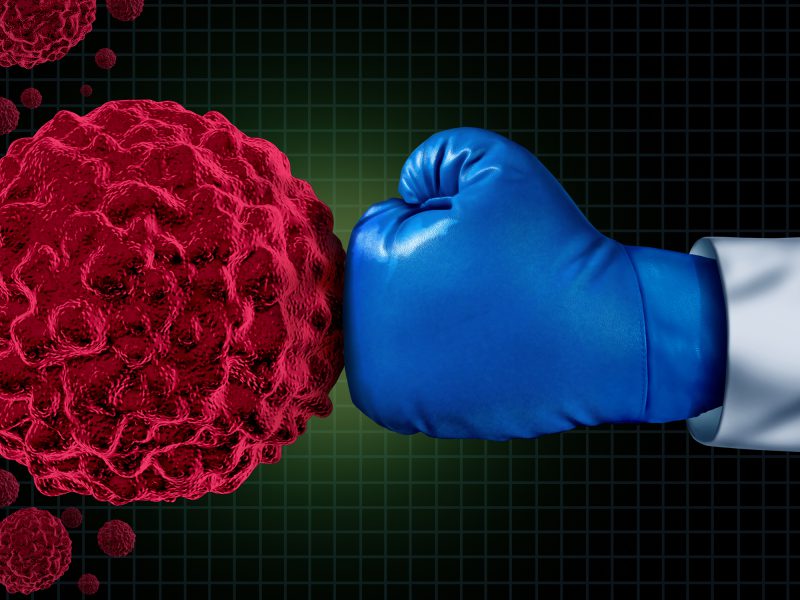Way back in the 1920s, researchers observed that compared to healthy cells, cancer cells capture large amounts of glucose.
On top of this, cancer cells metabolize that glucose in a very different way than healthy cells. It’s this altered metabolism that is linked to the growth, survival, maintenance and proliferation of cancer cells.

In other words, glucose (or sugar) makes you more susceptible to cancer, 14 different types in fact, according to research referenced in a post by Dr. Michael Cutler.
This knowledge that sugar sours your health has recently sparked researchers to explore this metabolic pathway as a way to prevent cancer and possibly treat it…
Anti-cancer diet
You’ve probably heard a bit about the ketogenic diet. Lots of athletes are following it these days, but athlete or not, a ketogenic diet may help you avoid cancer…
The ketogenic diet is based on a high fat (90%), moderate-to-low protein (8%) intake, and minimizes the intake of carbohydrates (2%) as low as 20 to 50 grams per day in total.
This creates a state in the body known as ketosis where the body produces more ketone bodies in the blood. Ketones are molecules that can be used by cells throughout the body as an alternative ‘fuel’ source to glucose. Other metabolic offsets of the diet include lower blood glucose, lower insulin production and more balanced blood pH levels.
And researchers believe all these benefits offer some cancer prevention and treatment potential…
To date there have been some great findings — decreased tumor tissue, changes to metabolism in cancer cells, stabilization of tumors in cancer patients, increased immune function and more.
But while it’s true that we do need more research (and there are currently more than a dozen trials still underway), one great finding of particular importance is that a ketogenic diet can reduce lactate levels in cells. And it’s high lactate that often leads to a worsened prognosis, particularly in head and neck squamous cell carcinoma.
Besides cancer, a ketogenic diet has been shown to be beneficial for many other chronic health conditions — epilepsy, obesity, type 2 diabetes, metabolic syndrome, and respiratory conditions.
But what about the fat?
A ketogenic diet is not a typical diet that most large organizations recommend. And for you, as is the case for most people, it is way off track from what you’re used to.
One of the first objections most people have is: won’t all that fat make me fat and give me high cholesterol?
The answer is no — particularly when you eat fat as your main macronutrient.
There are many nutritional myths around fat and in recent years it has been shown that excessive carbohydrate intake contributes more to the development of heart disease than fat.
In fact if you really want to be a lean machine, forget the low-fat nonsense and ditch the carbs. Omitting carbs switches your body from a glucose-burning engine to a fat-burning one. So just by eating a low-carb or ketogenic-like diet, you can burn fat just by eating the right way.
Another thing that many people struggle with is the super low carbohydrate intake of a ketogenic diet. Most ketogenic dieters limit themselves to 20-50 grams. The good news here is, in many cases (especially in terms of prevention) there is no need to go that low. Significant health benefits can be found by lowering carbs to 120 grams per day maximum.
I have previously covered what types of carbs to eat and avoid over here and if you’re interest in reducing your risk of a number of chronic lifestyle diseases, lowering your carbs is well worth the effort.
The ketogenic diet is not recommended for children, unless directly by a physician for certain conditions. If you’re an adult on blood pressure-lowering medications, talk to your doctor or seek the guidance of a nutritional professional when you begin an ketogenic diet. The diet is typically beneficial at lowering high blood pressure, but in combination with medication you could experience a sudden drop.
Sources:
Oliveira CLP, et al. A Nutritional Perspective of Ketogenic Diet in Cancer: A Narrative Review. — J Acad Nutr Diet. 2017
Low-carb diets should be reinstated as pillars of diabetes control, suggests new study — Diabetes.co.uk. (2017). Retrieved 11 May, 2017